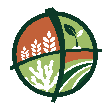Banca de QUALIFICAÇÃO: THAYNAN ALVES DOS SANTOS
Uma banca de QUALIFICAÇÃO de MESTRADO foi cadastrada pelo programa.STUDENT : THAYNAN ALVES DOS SANTOS
DATE: 27/04/2023
TIME: 10:00
LOCAL: Sala de reuniões
TITLE:
Decolonial Education in the Socio-environmental Practices of the Gamela Indigenous People in the "Last Agricultural Frontier
KEY WORDS:
Education. Decoloniality. Popular Extension. Socioenvironmental Issues. Gamelas Indians.
PAGES: 60
BIG AREA: Outra
AREA: Multidisciplinar
SUMMARY:
The indigenous peoples of Brazil face great conflicts in defense of their territories and, specifically in the cerrado biome, environmental issues are at the center of the antagonism between the Gamela indigenous people and the migrants from the south of Brazil. In spite of the expansion of the agricultural frontier of MATOPIBA, the indigenous people are leading educational practices that point to a rupture in the environmental paradigm of the civilizing world and its colonial project of destruction of natural resources and ecosystems. This context composes the initial research question: how do the Gamela indigenous people's socio-environmental practices impact the decolonial education paradigm, considering the relationship between scientific and popular knowledge that takes place in the popular university extension in the indigenous territory of Laranjeiras in face of the environmental devastation of the cerrado biome in MATOPIBA (PI)? Based on this tension, we have as a general objective to analyze how the socio-environmental practices of the Gamela Indigenous People affect the paradigm of decolonial education in the scope of popular university extension, which opposes rural development with the expansion of the "last agricultural frontier" in the indigenous territory of Laranjeiras. Popular education and extension in Paulo Freire (1921-1997), the actuality of extension in the contexts of decolonial struggles (Streck & Neto, 2019; Medeiros & Silva, 2021); indigenous knowledge (Yanomami, Albert, 2015; Krenak, 2010); the
debate on decoloniality in Quijano (2005) and decolonization in Silva (2017), and participant research in Brandão (1999), Streck(2011), Borda, (2005) in etc. The field of observation of the socio-environmental practices of the indigenous gamelas are the formative processes of the extension actions of the Popular University Project. These theoreticians ground a new paradigm of socio-environmental development, as a field of progression of scientific knowledge. The decolonial extension reaffirms the initial protagonism of the peasants and, in the current extension, the ancestral self-identity of the Gamela indigenous people as political subjects in the production of decolonial knowledge as a possibility of breaking with the dominant epistemology of development in the cerrado biome with the expansion of the agricultural frontier of MATOPIBA.
COMMITTEE MEMBERS:
Externa à Instituição - ADRIANA LIMA MONTEIRO CUNHA - UFPI
Presidente - 2253651 - ANDRE DE ALMEIDA REGO
Interno - 1770872 - DIRCEU BENINCA
Interno - 1932539 - JOAO BATISTA LOPES DA SILVA
Externa à Instituição - LUCINEIDE BARROS MEDEIROS



